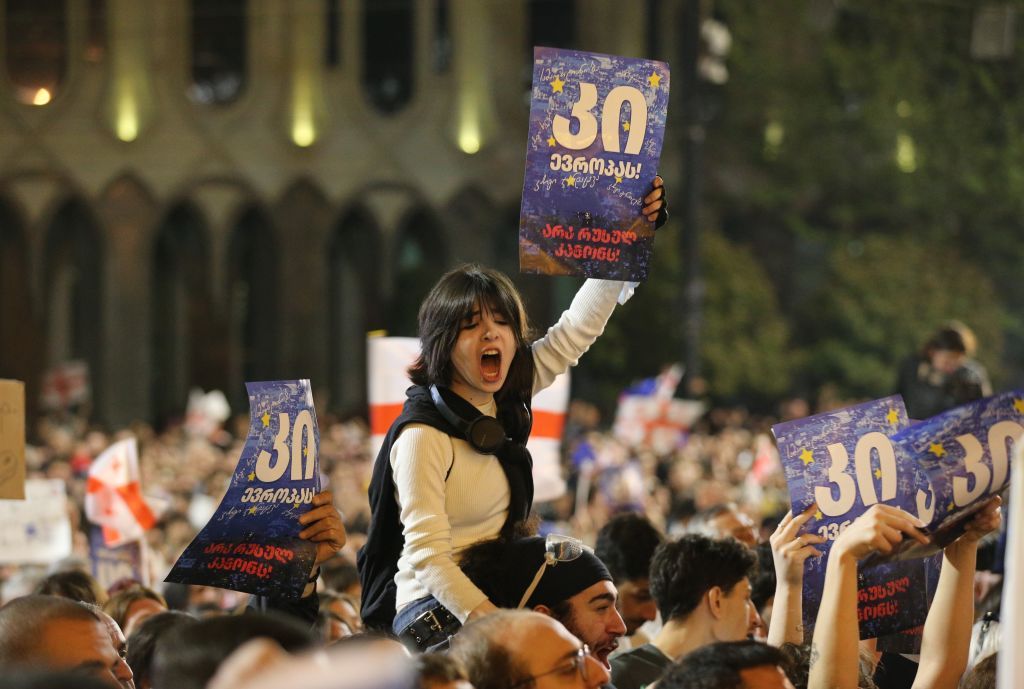Georgia’s parliament recently passed a controversial foreign agents law in its first reading, sparking widespread protests and outrage. The bill, introduced by the ruling Georgian Dream party, would require organizations receiving foreign funding to be labeled as foreign agents, mirroring similar legislation in Russia. Despite opposition and demonstrations, the legislation was approved by 83 lawmakers, leading to continued protests and arrests of demonstrators. The law, popularly known as the “Russian law,” has deepened political divisions in the country and raised concerns about potential police brutality and government repression against dissenting voices.
Political infighting within the government has escalated, with episodes of violence among lawmakers. The leader of the Georgian Dream’s parliament faction, Mamuka Mdinaradze, was punched in the face by an opposition lawmaker, sparking further tensions. Georgian President Salome Zourabichvili condemned the law as a “direct provocation” and vowed to veto it, citing concerns about its impact on the country’s EU aspirations. The reintroduction of the law comes at a critical time as Georgia is in the process of negotiating its accession to the EU, with EU officials warning that such legislation could hinder the country’s progress towards joining the bloc.
The legislation, if passed, is seen as a direct threat to Georgia’s EU aspirations, as European Council President Charles Michel and former Georgian diplomats have warned that it would push the country further away from EU integration. The Diplomats Club of Georgia issued a statement criticizing the law for sabotaging the country’s path into the EU and accused influential figures like Bidzina Ivanishvili of obstructing necessary reforms. Some analysts speculate that the reintroduction of the law is a strategic move by the ruling party to appeal to far-right segments of the population, using fear tactics and homophobia to garner support. The government’s actions have raised concerns about the fairness and freeness of future elections in Georgia.
The revival of the foreign agents law in Georgia has sparked speculation about the motives behind its reintroduction. Some believe it may be a deliberate attempt to protect influential figures like Ivanishvili from potential EU sanctions, while others suggest it could be a response to orders from Russia. The law, known colloquially as the “Russian law,” has drawn parallels to legislation in Russia that has been used to target and silence dissenting voices. Despite promises from Georgian Dream lawmakers not to reintroduce the law after it was abandoned in 2023, the recent approval of the legislation has reignited concerns about government repression and violations of free speech.
The ongoing protests and conflicts surrounding the foreign agents law in Georgia highlight the challenges facing the country as it navigates its path towards EU integration. The law’s passage has raised alarms about the erosion of democratic values and the potential for increased government control over civil society. As Georgia grapples with political infighting, protests, and international scrutiny, the fate of the foreign agents law and its implications for the country’s future remain uncertain. The tensions within the government and society at large signal a pivotal moment in Georgia’s democratic development and its relationships with the EU and other international partners.


